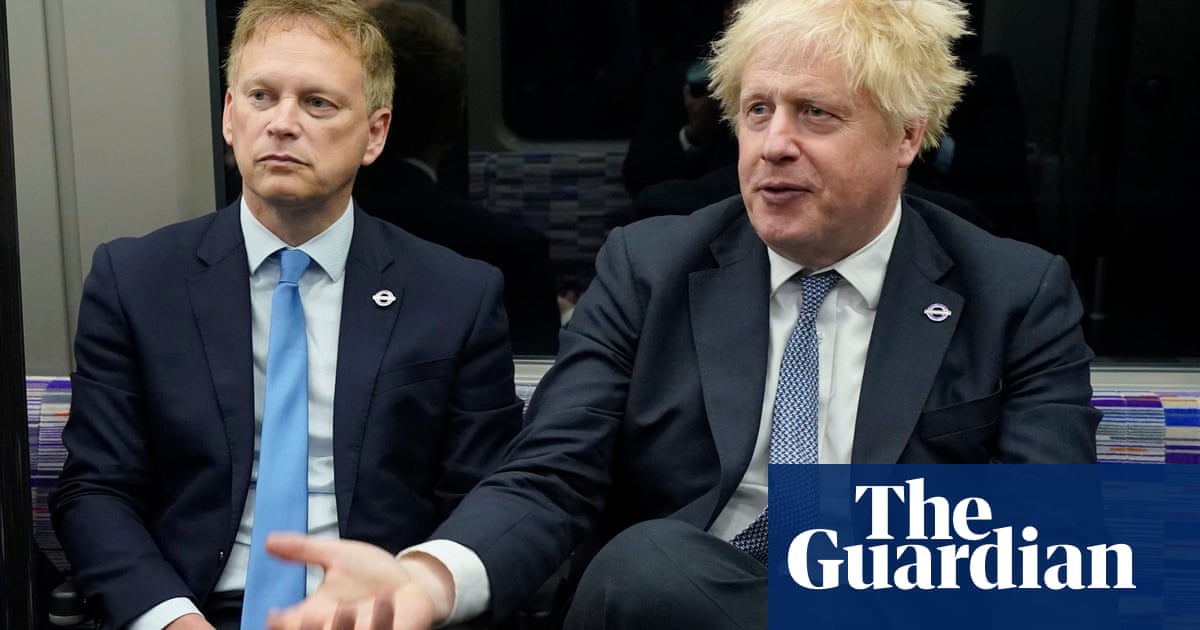
An Australia-style closure of borders would not help the UK combat the Covid-19 crisis, the transport secretary, Grant Shapps, indicated, as the government continued to come under pressure to implement tougher travel restrictions.
Amid concern over Covid-19 variants spreading from abroad, Shapps sought to make the case against blanket curbs by highlighting the importance of importing food and medicines, as well as allowing the flow of some people such as scientists.
Separately, the health secretary, Matt Hancock, failed to confirm that quarantine hotels scheduled to accommodate international arrivals from 33 high-risk locations on the UK travel ban list would be ready to open by the end of February.
Under measures announced at the end of last month, people who are still able to return from countries on the travel ban list – British and Irish nationals, as well as those with UK residency rights – are to be required to quarantine in hotels for 10 days upon arrival. But the government has yet to provide a date for when the new measures will be enforced.
Australia introduced quarantine hotels in March 2020 at the outset of the pandemic, the same month it closed its borders. Exceptions include returning Australian citizens and residents, immediate family members and people from New Zealand.
Speaking at the Commons transport select committee on Wednesday, Shapps said: “What tends to happen is people say, well, why don’t we just close down and then we’ll be safe? But, of course, we wouldn’t be safe, because we are an island nation unlike … Australia or something which is an entire continent – and that means that we need to get medicines in, we need to get food in, we need to get our raw materials in, sometimes we have to move people around, scientists and others.
“And if we weren’t doing these things then we simply wouldn’t be combating this crisis. In fact … specifically we wouldn’t have had things like the medicines that we’ve needed or indeed the vaccinations, some of which are manufactured in Europe, only … 20 miles away at its closest point.”
He later added: “We are not, as I say, an entire continent like the US or Australia. We rely very, very, heavily on our very close connections with our friends and partners, particularly in Europe but elsewhere around the world. So we have to … consider the practicalities of what we propose.”
He also said that the government would not provide financial assistance to people required to pay to stay in quarantine hotels. People arriving from affected countries on the so-called red list would have “known for quite some time that there were issues”, he told MPs, adding: “The numbers that we expect to see returning would be quite low.”
On Tuesday, it was reported that the Scientific Advisory Group for Emergencies (Sage) had warned that only mandatory hotel quarantine for all travellers would prevent new Covid strains from arriving in the country.
Sage advised that “geographically targeted travel bans” would not be enough to prevent the arrival of new coronavirus variants and that the only way to “get close” to stopping the infections was either by closing the borders completely or introducing mandatory quarantine measures for everyone entering, according to the Times.
The prime minister’s spokesman said on Tuesday that Sage “did not actually advise the government to completely close borders or call for a blanket quarantine on travels”.
Labour has been pushing for a wider hotel quarantine policy, extending to countries beyond those on the red list to cover all travellers entering the UK. Although the party has said certain exemptions will be required, including for hauliers.
Nick Thomas-Symonds, the shadow home secretary, has written to the home secretary, Priti Patel, to urge the government to publish the full Sage minutes relating to decisions on quarantine.
He wrote on Tuesday: “Everything possible must be done to guard against the prospect of a new strain of this virus reaching the UK, which might be resistant to the vaccine undermining the progress of the rollout and the extraordinary efforts of the British people. We must now act decisively to introduce a comprehensive hotel quarantine policy to minimise these risks.”
Hancock refused to be drawn on a date for the start of hotel-based quarantines. Asked if quarantine hotels would be in position for international arrivals by the end of February on LBC, he said on Wednesday: “We’ll set out more details of that when we’re ready to, but … you’ve seen that we’re perfectly prepared to take very tough action if that’s what’s needed.”
A start-date for the quarantine hotels has been earmarked for 15 February, according to reports. Pressed on whether that date was correct, Hancock replied: “Well, let’s see where we get to.”












